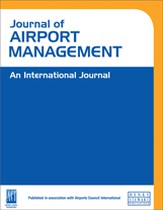The importance of collaborative dialogue in the aircraft noise debate: Examples of flightpath changes at UK airports
Abstract
Aircraft noise remains one of the most socially contentious aspects of air transport operations and the one that is most likely to motivate local community opposition to airport expansion and development. Identifying the complex and often interlocking socio-political and acoustic factors that underpin this opposition represents a key management challenge for airports. Learning how to disseminate information to affected groups about current and future noise exposure levels in a way that is equally understandable and comprehensive, and empowering communities to work with airport operators and aviation regulators to refine possible noise mitigation options are both prerequisites for achieving more socio-environmentally equitable and sustainable aviation. Drawing on two examples of flightpath reorganisation at UK airports, this paper shows that establishing and maintaining effective collaborative dialogue between airports, airlines, aviation regulators and local communities will help to overcome some of the communication breakdowns that have strained some airport-community relations in the past. By examining the benefits, challenges and opportunities associated with this approach, the paper offers a new framework for collaborative working and makes recommendations for improved practice.
The full article is available to subscribers to the journal.
Author's Biography
Lucy Budd is Senior Lecturer in Air Transport and Programme Director of the MSc in Air Transport Management in the School of Civil and Building Engineering at Loughborough University. Lucy has published widely in the area of airport and airline operations and she is co-editor (with Stephen Ison) of the new book Air Transport Management: An International Perspective (2016, Taylor and Francis).
Thomas Budd is a Lecturer in Airport Planning and Management in the Centre for Air Transport Management at Cranfield University, UK, and Course Director for the MSc in Airport Planning and Management. His research and teaching activities focus on issues of air transport environmental sustainability and resilience planning, and how disruptive technologies can be leveraged to facilitate safe, seamless and sustainable journeys. His research in this area has been widely published in leading peer-reviewed academic journals and industry textbooks, including The Journal of Transport Geography, Transportation Research: Part A and the Journal of Air Transport Management.
